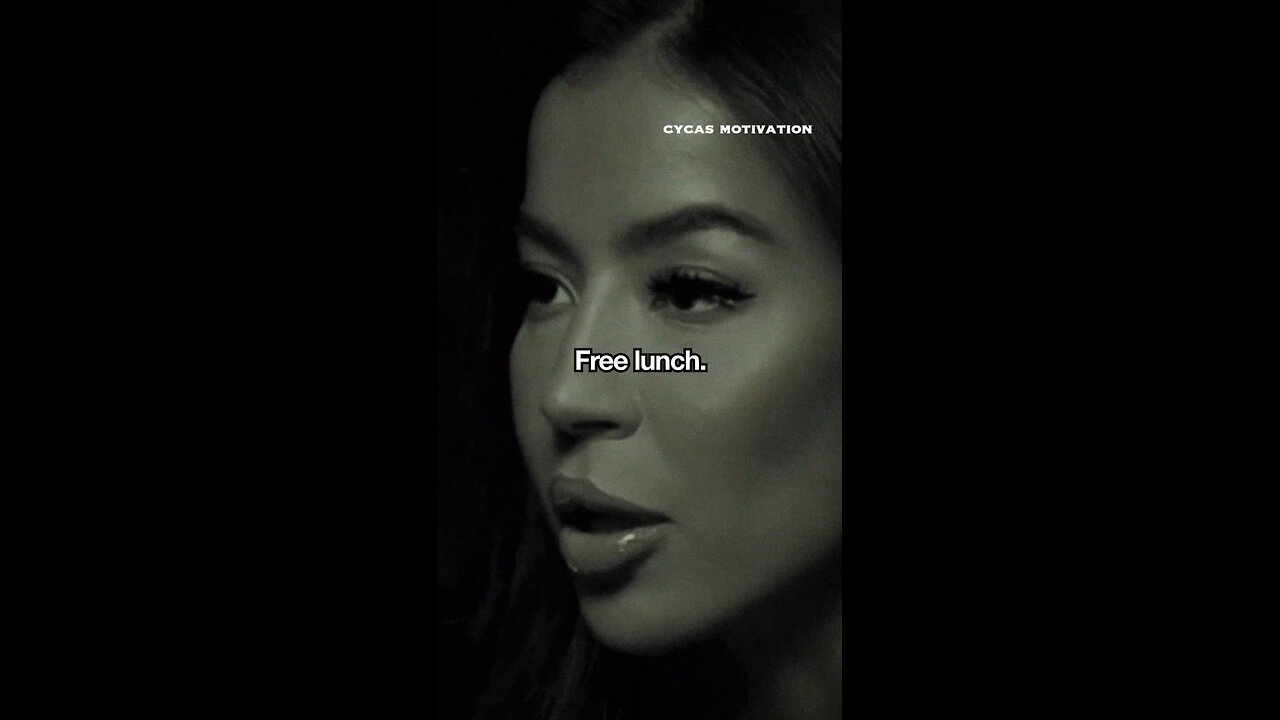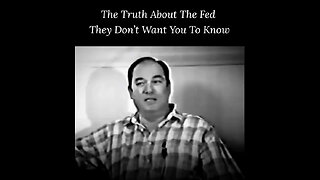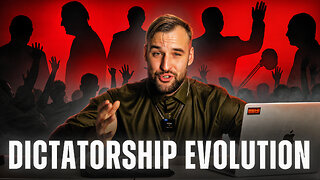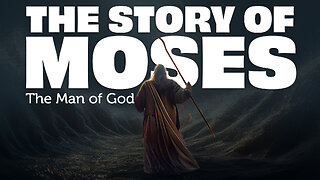Premium Only Content

The Price of Freedom: Unveiling the Hidden Cost of Free Offers
In the complex landscape of human interactions, the allure of “free” stands as both a temptation and a trap. Whether it’s a meal, a service, or a favor, the notion of something offered for nothing is deeply appealing. Yet beneath this surface simplicity lies an intricate web of reciprocity, manipulation, and unseen costs. To accept a “free lunch” often means surrendering a piece of your autonomy, authenticity, or future choices. This teaching explores the profound wisdom of self-sufficiency, discernment, and the true cost of freedom.
I. The Illusion of Free: Why Nothing Comes Without a Cost
Free is never truly free. Economists, philosophers, and spiritual teachers alike recognize this truth. Every transaction—whether monetary, emotional, or psychological—bears a cost. The question is not if there’s a price but what that price will be.
1. The Economics of “Free”
In the digital age, free offerings are everywhere: social media platforms, apps, and loyalty programs. But these “free” services harvest data, behavior, and preferences, transforming you from a consumer into the product.
• Example: Social media platforms are ostensibly free, yet they monetize your attention and sell your data to advertisers. What you gain in convenience, you lose in privacy.
• Hidden Trade-offs: Accepting something for free often creates an invisible exchange where your autonomy or future decisions are subtly compromised.
Wisdom: Always ask, “What’s the real cost of this offering?” Free might cost you more than you realize.
II. The Strings Attached: How Free Binds You
What seems like generosity often comes with unseen threads. Accepting a free offer can quietly tie you to obligations that restrict your freedom and alter your choices.
1. The Psychology of Reciprocity
Humans are social creatures governed by the principle of reciprocity. When someone gives you something, you feel compelled to return the favor—even if no explicit demand is made. This creates leverage.
• Manipulative Generosity: A free favor can become a future claim, making you feel indebted or guilty.
• Emotional Debt: Gratitude, while noble, can evolve into an obligation, eroding your ability to act freely.
Wisdom: By paying your way, you sidestep the emotional weight of unspoken obligations, preserving your autonomy.
2. Dependency and Control
Free offerings can breed dependence. Over time, reliance on freebies diminishes self-sufficiency and strengthens the giver’s influence.
• Example: Governments offering “free” programs or corporations providing free trials often aim to create long-term reliance.
• Loss of Agency: The more dependent you are on a giver, the less control you have over your choices and future.
Wisdom: Self-reliance is the ultimate form of power. By paying for what you need, you ensure that no one holds undue influence over your life.
III. The Hidden Agenda: What Lies Beneath the Surface
Generosity often masks an agenda. Whether political, commercial, or personal, the giver of a free offer may seek something far greater than what they give.
1. Building Leverage
Free is often a calculated investment. The giver positions themselves to gain influence, loyalty, or control.
• Commercial Agendas: Free samples or trials are designed to hook you, ensuring future purchases.
• Political Agendas: Free programs can serve as tools for control, subtly shaping public behavior or opinion.
Wisdom: Discern the motives behind every free offering. Acknowledge what the giver gains and decide if you’re willing to pay that unseen price.
2. Creating a Power Imbalance
Accepting something for free often tilts the scales of power, placing the giver in a superior position.
• Moral Superiority: The giver may wield the act of generosity as a weapon, fostering guilt or submission in the receiver.
• Influence through Gratitude: A free offer creates emotional leverage, making it harder to refuse future demands.
Wisdom: True power lies in balance. Paying your way ensures equality in your relationships and interactions.
IV. The Power of Self-Sufficiency
Self-sufficiency is a declaration of independence. By paying your own way—whether in money, effort, or time—you maintain control over your life and decisions.
1. Autonomy Over Gratitude
When you pay the full price, you owe nothing but the exchange itself. This liberates you from the hidden obligations that free offerings often impose.
• Freedom of Choice: Paying empowers you to act according to your values, not out of guilt or dependency.
• Authenticity in Relationships: By avoiding the burden of unspoken debts, your interactions remain genuine and equitable.
Wisdom: Independence is the cornerstone of freedom. Paying your way ensures that you remain the author of your own story.
2. The Long-Term Advantage
Investing in yourself—through money, effort, or time—yields long-term dividends. It reinforces discipline, builds resilience, and protects against exploitation.
• Example: Paying for education or resources fosters growth, while relying on free shortcuts often limits progress.
• Empowerment through Investment: By valuing what you pay for, you cultivate a sense of ownership and pride.
Wisdom: The full price of something is not a cost—it’s an investment in your autonomy and future potential.
V. Cultivating Discernment: Navigating the Complexities of Generosity
Not all free offerings are traps. Genuine generosity exists, but discerning its authenticity requires wisdom and awareness.
1. Recognizing True Altruism
True generosity expects nothing in return. It is a gift given freely, with no hidden strings or future demands.
• How to Identify It: Look for transparency and sincerity. Genuine givers make their motives clear and respect your boundaries.
• Mutual Exchange: If you accept, reciprocate on your terms, ensuring balance and equality.
Wisdom: Learn to differentiate between true kindness and covert manipulation. Accept only what aligns with your values.
2. Mastering the Art of Giving
Generosity, when wielded wisely, can be a tool of empowerment rather than control.
• Give Without Strings: Offer help or resources freely, expecting nothing in return.
• Empower Others: Use your resources to foster independence in others, not dependence.
Wisdom: The act of giving is most powerful when it uplifts both the giver and the receiver, leaving both enriched and autonomous.
VI. Conclusion: The Cost of Freedom
The allure of free offerings tests our discernment, our discipline, and our understanding of value. By paying our way, we protect our autonomy, maintain our authenticity, and navigate life with clarity and confidence.
Final Wisdom: Freedom is the ultimate currency. Its cost is vigilance, effort, and sometimes sacrifice, but its value is immeasurable. Pay the price, walk your own path, and ensure that every choice you make is guided by your own principles, not the invisible strings of someone else’s generosity.
-
 1:26
1:26
FragmentsOfTruth
2 days agoJFK’s Battle Against the New World Order: The Untold Economic Revolution
1381 -
 LIVE
LIVE
I_Came_With_Fire_Podcast
10 hours agoNOC Spy: CIA uses SATANIC RITUAL ABUSE to make SLEEPER Cells
400 watching -
 28:42
28:42
CatfishedOnline
23 hours ago $0.85 earnedWoman Insists Morgan Wallen Relationship Isn't a Romance Scam!
6.98K -
 16:25
16:25
TSPLY
23 hours agoNew CNN / MSNBC Meltdown Moments Of Getting Mad At Donald Trump In February
12.8K8 -
 8:33
8:33
scoutthedoggie
3 hours agoAirsoft War Games Scotland
7.58K1 -
 4:56
4:56
Kirill MultitoolOfficial
1 day ago $0.67 earnedSurvival TIPS and usefull bushcraft DIY in the wild
15K3 -
 27:25
27:25
ArturRehi
1 day agoThis is How Dictatorships are Formed
8.13K1 -
 59:35
59:35
AlaskanBallistics
16 hours ago $0.28 earnedI Love this Gun Episode # 11
6.19K1 -
 1:21:01
1:21:01
BibleUnbound
18 hours agoThe Complete Story of Moses: The Man of God
12.8K3 -
 15:56
15:56
Chris From The 740
7 hours ago $0.01 earnedFenix LR36R Review: The Most Powerful Light I've Ever Tested!
6.9K1